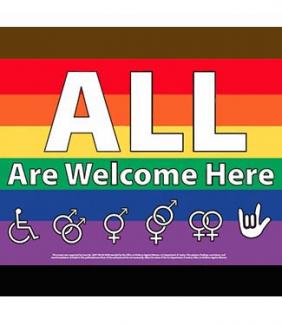Uniting to End Violence Against People with Disabilities is a national Coalition comprised of activists with disabilities as well as disability rights and anti-violence advocates. The work of this Coalition is funded by the NoVo Foundation and led through a partnership between the Vera Institute of Justice and the National Resource Center on Domestic Violence (NRCDV). Coalition members include the Arc of U.S.; Autistic Self Advocacy Network (ASAN); Green Mountain Self-Advocates; Idaho Coalition against Sexual and Domestic Violence; IamNegrx: International Alianza de Mujeres Negrx; University of Arkansas: Initiative on Access and Justice; the Board Resource Center Abuse Awareness Team; the SAFE Alliance, IMPACT: Ability, and several independent self-advocates.
The Coalition embraces the theme of 2019 Sexual Assault Awareness Month, I Ask, and wants to ensure that people with disabilities are emphasized during this awareness campaign. While people with disabilities experience disproportionate rates of sexual violence, they are often forgotten in conversations about rape and sexual assault.
The work of Uniting to End Violence Against People with Disabilities centers the lived experiences of those most marginalized and commits to ending violence against people with disabilities while dismantling racism and ableism. Research tells us that people with disabilities are 2.5 times more likely to be victims of violent crimes, and 3 times more likely to be victims of “serious violent crimes” including sexual assault, robbery, and aggravated assault than people without disabilities. Persons of two or more races had the highest rates of violent victimization among persons with disabilities (128.5 per 1,000). National Public Radio has reported that people with intellectual disabilities are 7 times more likely to be sexually assaulted than people with no disabilities, with 86% of women with disabilities being much more likely to be sexually assaulted by someone they know than a stranger. Men with disabilities are twice as likely to become a victim of sexual violence compared to men without disabilities.
Thus far, the primary public policy responses to sexual violence against people with disabilities is to restrict their freedom and autonomy. Too often, in the aftermath of sexual assault, survivors with disabilities are forced in restricted settings that can easily lead to more abuse. We believe that this response to sexual violence against people with disabilities is rooted in ableism. For people of color with disabilities, racism and ableism intersect and compound the likelihood of being targeted for sexual violence and the impact of systems and services unable to provide support and justice.
By applying a racial equity and justice approach to our work, the Coalition accounts for the role of racism and ableism in perpetuating violence and oppressive behavior in our culture and commits to dismantling these forms of oppression at the individual, community, systemic and societal levels.
We invite you to join our voices and commit to ending sexual assault for everyone by building inclusive, accessible and anti-racist movements, communities and societies. Focusing on those who are most marginalized – as well as uplifting people of color with disabilities as leaders and changing the face of leadership in our movements – ensures that our approaches, strategies, and policies advance justice for all.
In solidarity,
Uniting to End Violence against People with Disabilities Coalition
![]()
![]()














